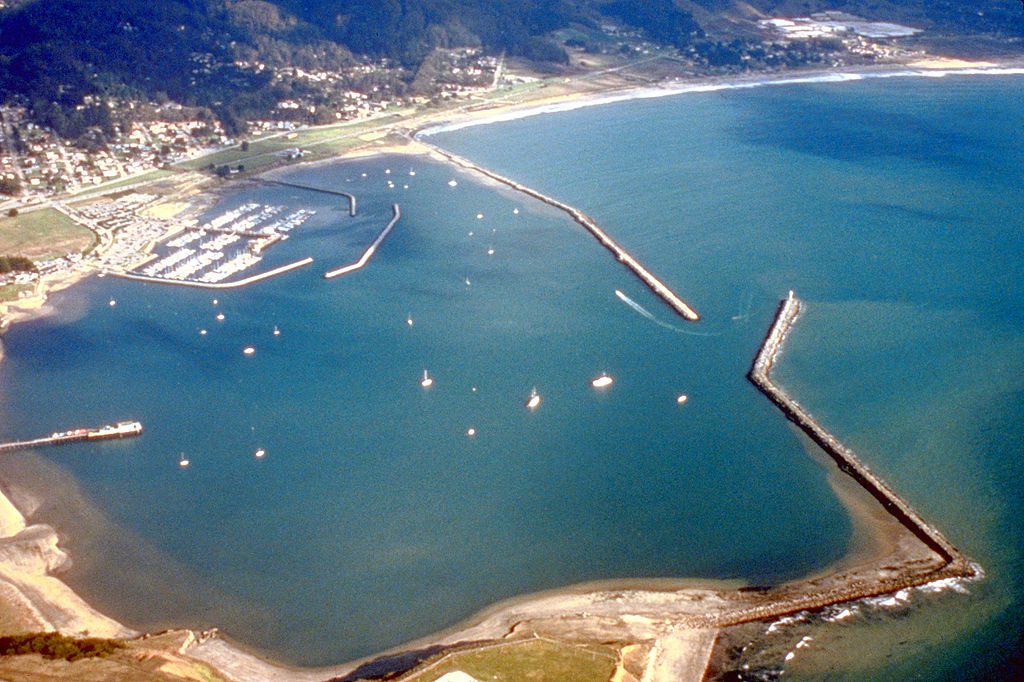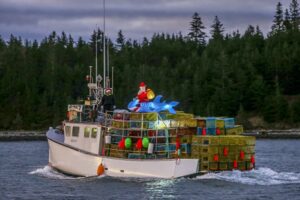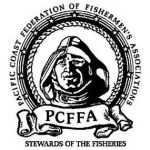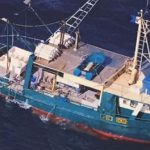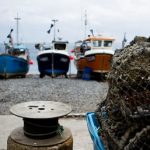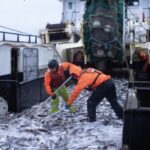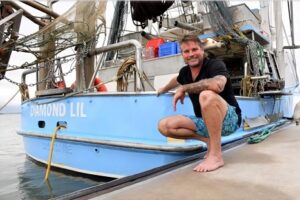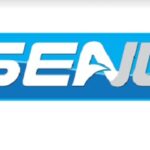Tag Archives: Seafood Import Monitoring Program
Is forced labor in Indian exports affecting Louisiana shrimpers? Congress investigates
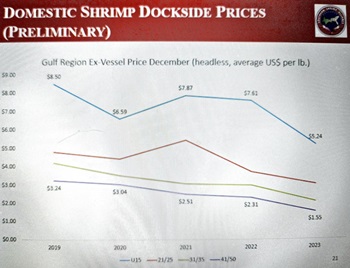 A congressional committee is investigating allegations of slave labor in the Indian shrimp industry. Such practices are among those blamed for rock-bottom shrimp prices negatively affecting Louisiana shrimpers. The House Committee on Natural Resources is investigating accusations of forced labor as well as importation of illegally obtained fish products. Additionally, the committee is looking at fraudulent reporting through the Seafood Import Monitoring Program, and the illegal use of antibiotics. The health of the American shrimp industry can often be measured by the number of landings each year. Those numbers have been on a mostly steady decline since 2001, with only five years above the downhill slope. more, >>CLICK TO READ<< 09:10
A congressional committee is investigating allegations of slave labor in the Indian shrimp industry. Such practices are among those blamed for rock-bottom shrimp prices negatively affecting Louisiana shrimpers. The House Committee on Natural Resources is investigating accusations of forced labor as well as importation of illegally obtained fish products. Additionally, the committee is looking at fraudulent reporting through the Seafood Import Monitoring Program, and the illegal use of antibiotics. The health of the American shrimp industry can often be measured by the number of landings each year. Those numbers have been on a mostly steady decline since 2001, with only five years above the downhill slope. more, >>CLICK TO READ<< 09:10
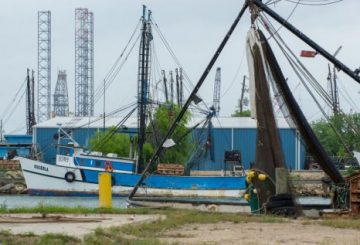
SIMP: Federal monitoring program will track foreign imports
A decision by Congress to add imported shrimp to the Seafood Import Monitoring Program is good news for an industry not used to hearing good news. The Gulf shrimp industry has struggled against a rising tide of cheap foreign imports for years, making it tough for domestic shrimp boat operators to make a living. Combined with the factors, this situation has led to a dramatic decline in the size of the Brownsville-Port Isabel shrimp fleet.,, The purpose is to thwart illegal, unreported and unregulated fishing activity. >click to read<10:38
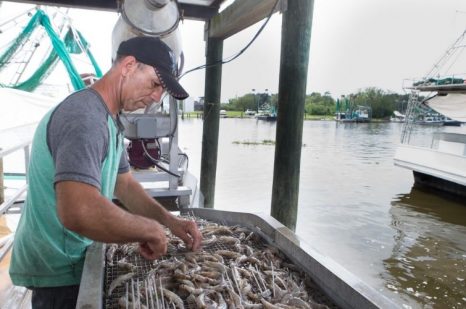
Gulf fishermen applaud seafood labeling law
A new regulatory program that will go into effect next year would require seafood to be labeled with its country of origin. Although some are worried about how the labeling might negatively affect the seafood industry as a whole, local fishermen and processors are seeing it as a boon. Opponents of the Seafood Import Monitoring Program, chief among them being the National Fisheries Institute that recently lost its lawsuit to stop the Jan. 1 implementation, say that the labeling for wild caught and farm-grown seafood could cost the industry millions of dollars. David Chauvin, owner of David Chauvin’s Seafood Co. in Dulac, said he believes the new regulations will help level the playing field for local fishermen and help the flagging seafood industry in the Gulf of Mexico. click here to read the story 13:15
Senators move to combat illegal seafood import activities
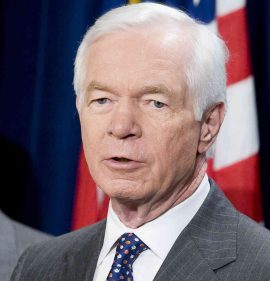 Senator Thad Cochran is pushing a bill in appropriations to reactivate federal monitoring of illegal activities involving shrimp exports to the United States. Previously the Senate Appropriations Committee approved the FY2018 Commerce, Justice, Science, and Related Agencies (CJS) Appropriations Act. It includes a Cochran-added provision that directs the National Oceanic and Atmospheric Administration to lift the stay imposed by the Obama administration that excludes shrimp from the Seafood Import Monitoring Program. click here to read the story 12:25
Senator Thad Cochran is pushing a bill in appropriations to reactivate federal monitoring of illegal activities involving shrimp exports to the United States. Previously the Senate Appropriations Committee approved the FY2018 Commerce, Justice, Science, and Related Agencies (CJS) Appropriations Act. It includes a Cochran-added provision that directs the National Oceanic and Atmospheric Administration to lift the stay imposed by the Obama administration that excludes shrimp from the Seafood Import Monitoring Program. click here to read the story 12:25
Judge says Butt Out! Environmentalists Can’t Help Defend Fishing Rules
 Three environmental groups cannot join the U.S. government to defend against a challenge to an Obama administration rule requiring seafood companies to report the origin of the fish they sell, a federal judge ruled (click to open). The National Resources Defense Council, the Center for Biological Diversity and Oceana asked the court on March 7 to join the government in defending a suit from a group of fishing companies challenging the seafood traceability rule, which requires companies to disclose on a government form the vessel or collection point of origin for their fish. The companies say the rule will make seafood more expensive. The environmentalists say it is critical to protecting fish populations from illegal fishing. The environmentalists made specific arguments in support of the rule, telling U.S. District Judge Amit Mehta that reversal would affect their daily lives. Lol! affect their daily lives? What lives! click here to read the story 10:07
Three environmental groups cannot join the U.S. government to defend against a challenge to an Obama administration rule requiring seafood companies to report the origin of the fish they sell, a federal judge ruled (click to open). The National Resources Defense Council, the Center for Biological Diversity and Oceana asked the court on March 7 to join the government in defending a suit from a group of fishing companies challenging the seafood traceability rule, which requires companies to disclose on a government form the vessel or collection point of origin for their fish. The companies say the rule will make seafood more expensive. The environmentalists say it is critical to protecting fish populations from illegal fishing. The environmentalists made specific arguments in support of the rule, telling U.S. District Judge Amit Mehta that reversal would affect their daily lives. Lol! affect their daily lives? What lives! click here to read the story 10:07
National Fisheries Institute bristles at comments by Canada’s fisheries minister
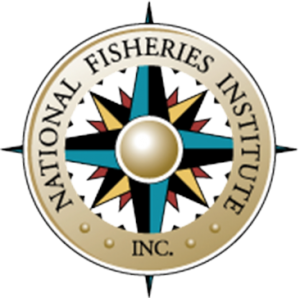 An American seafood industry association is disputing statements by Canada’s fisheries minister that Canadian producers need to “raise their game” in order to meet new traceability rules for seafood imported into the U.S. The Washington-based National Fisheries Institute, which opposes the new rules, says Canada has nothing to do with the illegal, unreported and unregulated (IUU) catches the new Seafood Import Monitoring Program was brought in to stop. The institute was reacting to a CBC News report where federal Fisheries Minister Dominic LeBlanc called increased traceability “very laudable,” even if Canada was not the target. He said Canada has been working with the U.S. government for months on this issue. “We need to raise our game to ensure that the Americans receive the evidence they require that our fisheries are compliant, as they are,” LeBlanc said. That statement put LeBlanc offside with the National Fisheries Institute, which is part a powerhouse lawsuit launched last month to block the Seafood Import Monitoring Program brought in by the former Obama administration in December. Read the story here 15:00
An American seafood industry association is disputing statements by Canada’s fisheries minister that Canadian producers need to “raise their game” in order to meet new traceability rules for seafood imported into the U.S. The Washington-based National Fisheries Institute, which opposes the new rules, says Canada has nothing to do with the illegal, unreported and unregulated (IUU) catches the new Seafood Import Monitoring Program was brought in to stop. The institute was reacting to a CBC News report where federal Fisheries Minister Dominic LeBlanc called increased traceability “very laudable,” even if Canada was not the target. He said Canada has been working with the U.S. government for months on this issue. “We need to raise our game to ensure that the Americans receive the evidence they require that our fisheries are compliant, as they are,” LeBlanc said. That statement put LeBlanc offside with the National Fisheries Institute, which is part a powerhouse lawsuit launched last month to block the Seafood Import Monitoring Program brought in by the former Obama administration in December. Read the story here 15:00
Canadian seafood industry braces for new U.S. traceability rules
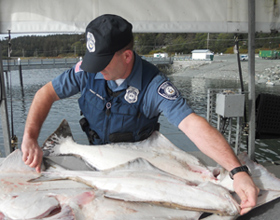 Canadian seafood producers will need to “raise their game” to satisfy new American seafood traceability rules, according to federal Fisheries Minister Dominic LeBlanc. The Seafood Import Monitoring Program was one of the final acts of the Obama administration. It will require much more detailed information about catches before they are allowed into the United States. “We need to raise our game to ensure that the Americans receive the evidence they require that our fisheries are compliant, as they are,” LeBlanc said. The goal is stop illegal, unregulated and unreported catches from entering the U.S. The measures go into effect next January. Read the story here 08:18
Canadian seafood producers will need to “raise their game” to satisfy new American seafood traceability rules, according to federal Fisheries Minister Dominic LeBlanc. The Seafood Import Monitoring Program was one of the final acts of the Obama administration. It will require much more detailed information about catches before they are allowed into the United States. “We need to raise our game to ensure that the Americans receive the evidence they require that our fisheries are compliant, as they are,” LeBlanc said. The goal is stop illegal, unregulated and unreported catches from entering the U.S. The measures go into effect next January. Read the story here 08:18
Obama Administration Issuing New Rules to Curb Illegal Fishing, Seafood Fraud
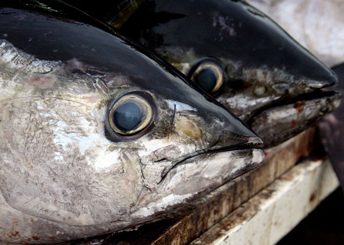 The Obama administration is issuing new rules it says will crack down on illegal fishing and seafood fraud by preventing unverifiable fish products from entering the U.S. market. The new protections are called the Seafood Import Monitoring Program, and they are designed to stop illegally fished and intentionally misidentified seafood from getting into stores and restaurants by way of imported fish. The rules will require seafood importers to report information and maintain records about the harvest and chain of custody of fish, officials with the National Oceanic and Atmospheric Administration said. The program will start by focusing on “priority species” that are especially vulnerable to illegal fishing, such as popular food fish like tuna, swordfish, Atlantic cod and grouper. The government hopes eventually to broaden the program to include all fish species, NOAA officials said. Read the rest here 17:50
The Obama administration is issuing new rules it says will crack down on illegal fishing and seafood fraud by preventing unverifiable fish products from entering the U.S. market. The new protections are called the Seafood Import Monitoring Program, and they are designed to stop illegally fished and intentionally misidentified seafood from getting into stores and restaurants by way of imported fish. The rules will require seafood importers to report information and maintain records about the harvest and chain of custody of fish, officials with the National Oceanic and Atmospheric Administration said. The program will start by focusing on “priority species” that are especially vulnerable to illegal fishing, such as popular food fish like tuna, swordfish, Atlantic cod and grouper. The government hopes eventually to broaden the program to include all fish species, NOAA officials said. Read the rest here 17:50

































